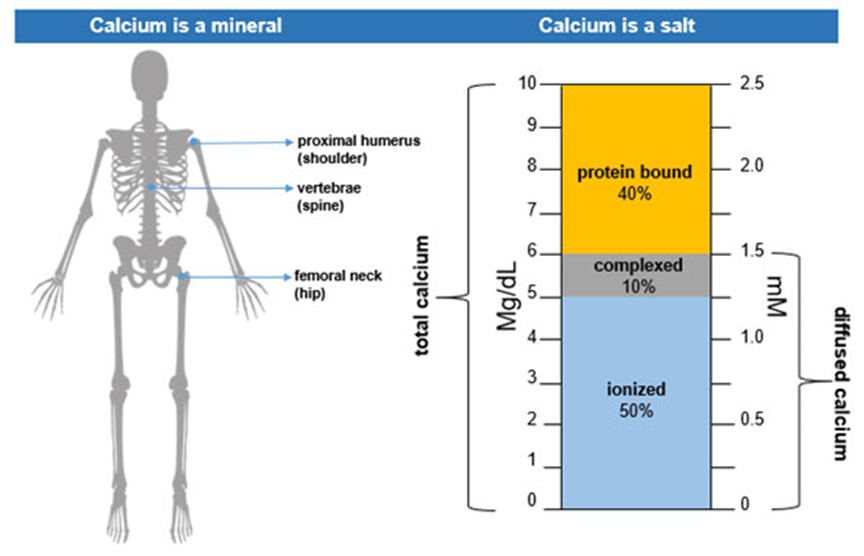Which may cause hyperkalemia?
Renal failure
Diarrhea
Blood transfusion
Diaphoresis
The Correct Answer is A
Choice A reason: Renal failure can cause hyperkalemia because the kidneys are unable to excrete excess potassium from the body. This can lead to high levels of potassium in the blood, which can affect the heart and muscles.
Choice B reason: Diarrhea can cause hypokalemia, not hyperkalemia, because it can lead to loss of potassium from the gastrointestinal tract. This can result in low levels of potassium in the blood, which can also affect the heart and muscles.
Choice C reason: Blood transfusion can cause hyperkalemia if the blood is old or hemolyzed, meaning that the red blood cells have broken down and released potassium into the plasma. This can increase the potassium levels in the recipient's blood.
Choice D reason: Diaphoresis, or sweating, can cause hypokalemia, not hyperkalemia, because it can lead to loss of potassium from the skin. This can also lower the potassium levels in the blood.
Nursing Test Bank
Naxlex Comprehensive Predictor Exams
Related Questions
Correct Answer is C
Explanation
Choice A reason: This is a low value for serum calcium, which indicates hypocalcemia. Hypocalcemia can cause muscle spasms, tetany, seizures, and cardiac arrhythmias.
Choice B reason: This is also a low value for serum calcium, which indicates hypocalcemia. Hypocalcemia can cause muscle spasms, tetany, seizures, and cardiac arrhythmias.
Choice C reason: This is the normal range of serum calcium in adults. Calcium is essential for bone health, muscle contraction, nerve transmission, and blood clotting.
Choice D reason: This is a high value for serum calcium, which indicates hypercalcemia. Hypercalcemia can cause nausea, vomiting, constipation, confusion, lethargy, and kidney stones.

Correct Answer is B
Explanation
Choice A reason: Moist skin is not a sign of dehydration, but rather a sign of adequate hydration or sweating. Dehydration can cause dry skin, mucous membranes, and lips.
Choice B reason: Dark-colored urine is a sign of dehydration, as it indicates a high concentration of waste products and a low volume of water in the urine. Dehydration can cause the kidneys to conserve water and produce less urine.
Choice C reason: High blood pressure is not a sign of dehydration, but rather a sign of fluid overload or other factors such as stress, pain, or medication. Dehydration can cause low blood pressure, as it reduces the blood volume and the cardiac output.
Choice D reason: Distended neck veins are not a sign of dehydration, but rather a sign of fluid overload or right-sided heart failure. Dehydration can cause flat neck veins, as it reduces the venous return and the central venous pressure.
Whether you are a student looking to ace your exams or a practicing nurse seeking to enhance your expertise , our nursing education contents will empower you with the confidence and competence to make a difference in the lives of patients and become a respected leader in the healthcare field.
Visit Naxlex, invest in your future and unlock endless possibilities with our unparalleled nursing education contents today
Report Wrong Answer on the Current Question
Do you disagree with the answer? If yes, what is your expected answer? Explain.
Kindly be descriptive with the issue you are facing.
